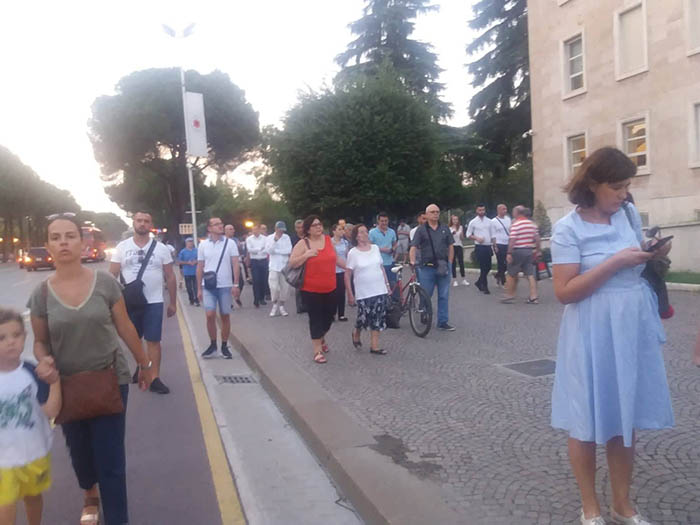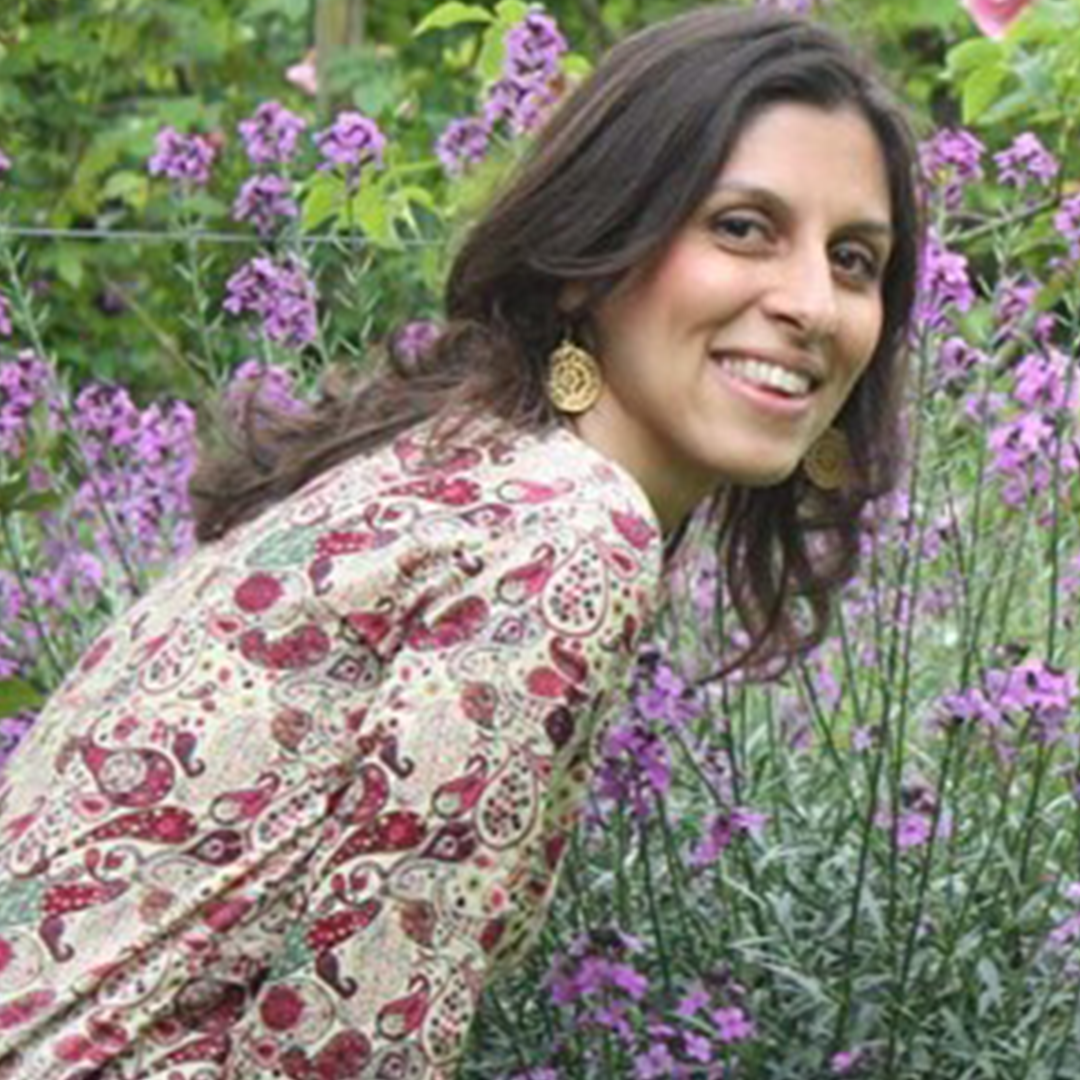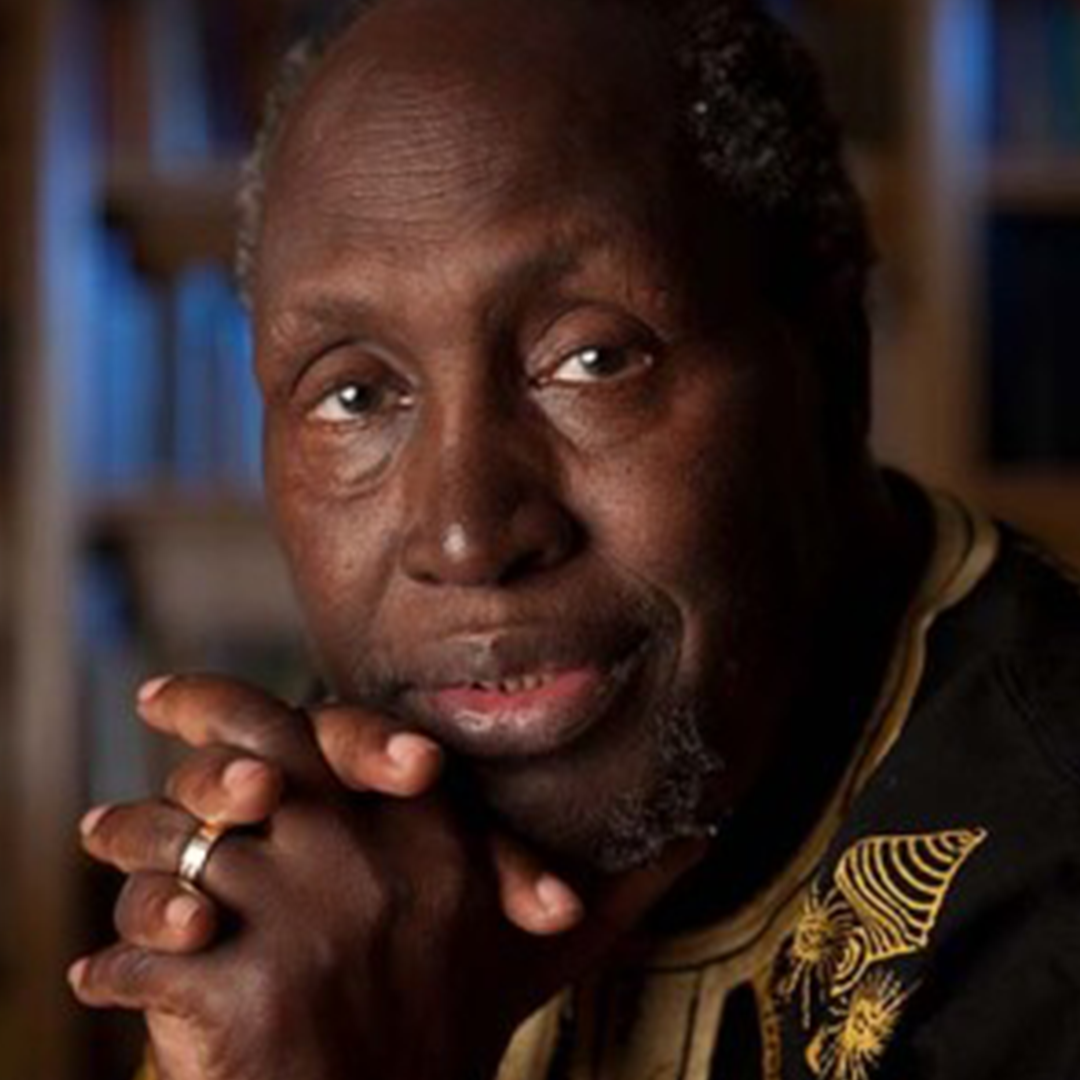28 Sep 2018 | Journalism Toolbox Spanish, Spain
[vc_row][vc_column][vc_custom_heading text=”Los periodistas mexicanos son objeto de amenazas por parte de un gobierno corrupto y cárteles violentos, y no siempre pueden confiar en sus compañeros de oficio. Duncan Tucker informa.
“][vc_single_image image=”97006″ img_size=”full” add_caption=”yes”][/vc_column][/vc_row][vc_row][vc_column][vc_column_text]«Espero que el gobierno no se deje llevar por la tentación autoritaria de bloquear el acceso a internet y arrestar activistas», contaba el bloguero y activista mexicano Alberto Escorcia a la revista de Index on Censorship.
Escorcia acababa de recibir una serie de amenazas por un artículo que había escrito sobre el reciente descontento social en el país. Las amenazas se agravaron al día siguiente. Invadido por una sensación de ahogo y desprotección, comenzó a planear su huida del país.
Son muchas las personas preocupadas por el estado de la libertad de expresión en México. Una economía estancada, una moneda en caída libre, una sangrienta guerra antinarco sin final a la vista y un presidente extremadamente impopular, sumados a la administración beligerante de Donald Trump recién instalada en EE.UU. al otro lado de la frontera, llevan todo el año generando cada vez más presión.
Una de las tensiones principales es el propio presidente de México. Los cuatro años que lleva Enrique Peña Nieto en el cargo han traído un parco crecimiento económico. También se está dando un repunte de la violencia y los escándalos por corrupción. En enero de este año, el índice de popularidad del presidente se desplomó hasta el 12%.
Y lo que es peor: los periodistas que han intentado informar sobre el presidente y sus políticas han sufrido duras represalias. 2017 comenzó con agitadas protestas en respuesta al anuncio de Peña Nieto de que habría una subida del 20% a los precios de la gasolina. Días de manifestaciones, barricadas, saqueos y enfrentamientos con la policía dejaron al menos seis muertos y más de 1.500 arrestos. El Comité para la Protección de los Periodistas ha informado que los agentes de policía golpearon, amenazaron o detuvieron temporalmente a un mínimo de 19 reporteros que cubrían la agitación en los estados norteños de Coahuila y Baja California.
No solo se silencian noticias; también se las inventan. La histeria colectiva se adueñó de la Ciudad de México a consecuencia de las legiones de botsde Twitter que incitaron a la violencia y difundieron información falsa sobre saqueos, cosa que provocó el cierre temporal de unos 20.000 comercios.
«Nunca he visto la ciudad así», confesó Escorcia por teléfono desde su casa en la capital. «Hay más policía de lo normal. Hay helicópteros volando sobre nosotros a todas horas y se escuchan sirenas constantemente. Aunque no ha habido saqueos en esta zona de la ciudad, la gente piensa que está ocurriendo por todas partes».
Escorcia, que lleva siete años investigando el uso de bots en México, cree que las cuentas de Twitter falsas se utilizaron para sembrar el miedo y desacreditar y distraer la atención de las protestas legítimas contra la subida de la gasolina y la corrupción del gobierno. Afirmó haber identificado al menos 485 cuentas que incitaban constantemente a la gente a «saquear Walmart».
«Lo primero que hacen es llamar a la gente a saquear tiendas, luego exigen que los saqueadores sean castigados y llaman a que se eche mano del ejército», explicó Escorcia. «Es un tema muy delicado, porque podría llevar a llamamientos a favor de la censura en internet o a arrestar activistas», añadió, apuntando que la actual administración ya ha pasado por un intento fallido de establecer legislación que bloquee el acceso a internet durante «acontecimientos críticos para la seguridad pública o nacional».
Días después de que el hashtag de «saquear Walmart» se hiciera viral, Benito Rodríguez, un hacker radicado en España, contó al periódico mexicano El Financieroque le habían pagado para convertirlo en trending topic. Rodríguez explicó que a veces trabaja para el gobierno mexicano y admitió que «tal vez» fuera un partido político el que le pagara para incitar al saqueo.
La administración de Peña Nieto lleva mucho tiempo bajo sospecha de utilizar bots con objetivos políticos. En una entrevista con Bloomberg el año pasado, el hacker colombiano Andrés Sepúlveda afirmaba que, desde 2005, lo habían contratado para influir en el resultado de nueve elecciones presidenciales de Latinoamérica. Entre ellas, las elecciones mexicanas de 2012, en las que aseguraba que el equipo de Peña Nieto le pagó para hackear las comunicaciones de sus dos mayores rivales y liderar un ejército de 30.000 bots para manipular lostrending topicsde Twitter y atacar a los otros aspirantes. La oficina del presidente publicó un comunicado en el que negaba toda relación con Sepúlveda.
Los periodistas de México sufren también la amenaza de la violencia de los cárteles. Mientras investigaba Narcoperiodismo, su último libro, Javier Valdez —fundador del periódico Ríodoce— se dio cuenta que hoy día es muy habitual que en las ruedas de prensa de los periódicos locales haya infiltrados chivatos y espías de los cárteles. «El periodismo serio y ético es muy importante en tiempos conflictivos, pero desgraciadamente hay periodistas trabajando con los narcos», cuenta. «Esto ha complicado mucho nuestra labor. Ahora tenemos que protegernos de los policías, de los narcos y hasta de otros reporteros».
Valdez conoce demasiado bien los peligros de incordiar al poder. Ríodoce tiene su sede en Sinaloa, un estado en una situación sofocante cuya economía gravita alrededor del narcotráfico. «En 2009 alguien arrojó una granada contra la oficina de Ríodoce, pero solo ocasionó daños materiales», explica. «He recibido llamadas telefónicas ordenándome que dejase de investigar ciertos asesinatos o jefes narcos. He tenido que omitir información importante porque podrían matar a mi familia si la mencionaba. Algunas de mis fuentes han sido asesinadas o están desaparecidas… Al gobierno le da absolutamente igual. No hace nada por protegernos. Se han dado muchos casos y se siguen dando».
Pese a los problemas comunes a los que se enfrentan, Valdez lamenta que haya poco sentido de la solidaridad entre los periodistas mexicanos, así como escaso apoyo de la sociedad en general. Además, ahora que México se pone en marcha de cara a las elecciones presidenciales del año que viene y continúan sus problemas económicos, teme que la presión sobre los periodistas no haga más que intensificarse, cosa que acarreará graves consecuencias para el país.
«Los riesgos para la sociedad y la democracia son extremadamente graves. El periodismo puede impactar enormemente en la democracia y en la conciencia social, pero cuando trabajamos bajo tantas amenazas, nuestro trabajo nunca es tan completo como debería», advierte Valdez.
Si no se da un cambio drástico, México y sus periodistas se enfrentan a un futuro aún más sombrío, añade: «No veo una sociedad que se plante junto a sus periodistas y los proteja. En Ríodoce no tenemos ningún tipo de ayuda empresarial para financiar proyectos. Si terminásemos en bancarrota y tuviésemos que cerrar, nadie haría nada [por ayudar]. No tenemos aliados. Necesitamos más publicidad, suscripciones y apoyo moral, pero estamos solos. No sobreviviremos mucho más tiempo en estas circunstancias».
Escorcia, que se enfrenta a una situación igualmente difícil, comparte su sentido de la urgencia. Sin embargo, se mantiene desafiante, como en el tuit que publicó tras las últimas amenazas recibidas: «Este es nuestro país, nuestro hogar, nuestro futuro, y solo construyendo redes podemos salvarlo. Diciendo la verdad, uniendo a la gente, creando nuevos medios de comunicación, apoyando a los que ya existen, haciendo público lo que quieren censurar. Así es como realmente podemos ayudar».
Escucha la entrevista a Duncan Tucker en el podcast de Index on Censorship en Soundcloud: soundcloud.com/indexmagazine
Duncan Tuckeres un periodista independiente afincado en Guadalajara, México.
Este artículo fue publicado en la revista Index on Censorship en primavera de 2017.
Traducción de Arrate Hidalgo.
[/vc_column_text][/vc_column][/vc_row]
21 Sep 2018 | Albania, Europe and Central Asia, Mapping Media Freedom, Media Freedom, media freedom featured, News and features
[vc_row][vc_column][vc_column_text]

A small protest by journalists and citizens after the attack on Klodina Lala’s parental home. Credit: Fjori Sinoruka
In the early hours of 30 August, investigative journalist Klodiana Lala’s parental home was sprayed with bullets. Luckily no one was injured.
Lala, a crime reporter for Albania’s News 24 TV, connected the incident with her work as a journalist, saying that neither she nor her family had any personal conflicts that would spur this type of incident. The attack drew rapid condemnation and calls to bring the perpetrators to justice from concerned citizens and politicians, including the country’s prime minister, Edi Rama, who described it as a “barbarous” act. He pledged that the authorities would spare no efforts to investigate the attack.
Rama’s fine words about this attack belie the reality of most crimes against journalists in Albania: identification and prosecution rates of perpetrators are near zero.
When City News Albania’s editor Elvi Fundo was brutally assaulted at 11am in crowded central Tirana, he too received solidarity from the country’s politicians and press, including a note from Rama. But 17 months later, those expressions of support haven’t translated into action from prosecutors.
The attack on Fundo, in which he was beaten with iron bars by two men in hoodies just metres from his office, left him unconscious with serious injuries to his head and an eye.
To add insult to his injuries, Fundo was told on 31 August 2018 that prosecutors were suspending the investigation into his assault because of the lack of suspects.
“This is a grotesque decision. Investigations are not conducted thoroughly. I had to force authorities to seek out more footage from the bars around the area after I left the hospital. They didn’t seem very keen to do so,” he said.
Fundo’s lawyer challenged the decision in court, emphasising that he has given prosecutors information, he said, that can lead investigators to those that ordered the attack.
“I will never stop pushing them to bring the authors of the assault on me to justice since this is not a case lacking in information. I believe the police and prosecutors are just afraid of those who ordered the attack on me,” he said.
While intimidation is a criminal offence in Albania and is punishable by a fine or up to two years in prison, journalists find themselves without much support when they are threatened due to their professional duties.
Very often, prosecutors are reluctant to even open a case and when they do are eager to drop the charges, as was the case against a man who threatened a journalist on Facebook.
Dashamir Bicaku, a crime reporter who acted as a fixer and translator for a Daily Mail journalist, received an anonymous threatening message on June 17 2018 via his Facebook account. The threat came two days after the Mail published an investigation into Elidon Habilaj’s fraudulent asylum claim and subsequent career in British law enforcement, for which Habilaj was convicted and sentenced to 18 months in absentia.
“I’ll come straight to the point! I’ll come and get you so that there’ll be nothing left of you and yours!”, the message read. He reported the incident to the police the next day, alleging to law enforcement that Habilaj was the only person who would have a motive to threaten him.
But on 31 July 2018, he received a letter from the Vlora prosecutor’s office telling him that they had decided not to open an investigation into the case. According to Bicaku, the prosecutors said that Habilaj had denied sending a threatening message to the journalist and — even if he had — the message was not serious.
A few days later Bicaku learned that a close relative of Habilaj was working as a prosecutor in the same unit.
“What happened is a clear signal about the connections that those involved in organised crime have with people in the justice system,” Bicaku said.
Even when the aggressor has been clearly identified, negligence by the investigating institution makes appropriate punishment difficult.
Julian Shota, a correspondent of Report TV, was threatened with a gun by Llesh Butaku, the owner of a bar in the town of Lac where an explosion had taken place. When the journalist identified himself, Butaku demanded that he leave and not report the incident. When Shota refused, Butaku loaded a gun and pointed it at the journalist’s head.
Shota said he was saved by Butaku’s relatives, who grabbed his hand to prevent him from shooting. The journalist immediately reported the incident to police, but three hours passed before they arrived to detain Butaku.
“In three hours you can hide a rocket let alone a handgun,” Shota said. “The prosecutor received me in his office telling me clearly that I should not expect a lot since no gun was found on him.”
After seven hours Butaku released and the charge for illegal possession of firearms, which could have carried a prison sentence, was dropped.
“Instead of being investigated for attempted murder, Butaku is only being investigated for making threats,” he said.
Artan Hoxha, a prominent investigative journalist with over 20 years of experience, remembers tens of case when he was threatened because of his job, but that “every single case was suspended without any success”.
“I rarely report the threats that I receive to the authorities anymore. I know it is not worth even to bother doing so,” he said.
Part of the problem is that the Albanian judicial system is considered one of the most corrupt in Europe. It is currently undergoing a radical reform overseen by international experts in which all the country’s judges and prosecutors are being put through a vetting process.
As of August, 45 judges and prosecutors have been evaluated. Twenty-one failed and will be unable to continue to work in the judicial system.
Dorian Matlija, attorney and executive director at Res Publica, a centre for transparency, considers the prosecution the most problematic branch of the judicial system.
“Journalists are right, the prosecution is infamous for its bad work and it is one of the less scrutinised institutions over its decisions despite having a lot of power within the system,” he said.
According to Matlija, when journalists received death threats or are sued, they often find themselves alone.
“They have difficulties accessing and navigating the judicial system while the media owner is often the first to abandon them to keep trouble at bay,” Matlija said.
To remedy this, he said that is very important to create free legal help for journalists, not only when they face prosecution, and also to push for employment rights.
Journalists consider the lack of judicial protection a big obstacle in continuing doing investigative journalism in Albania.
“Is very difficult to investigate organised crime in Albania, since you don’t have the minimum protection and media owners can throw you out in the first place,” Bicaku said.[/vc_column_text][/vc_column][/vc_row][vc_row][vc_column][vc_basic_grid post_type=”post” max_items=”4″ element_width=”6″ grid_id=”vc_gid:1537456192915-fc339c8f-4676-3″ taxonomies=”6564″][/vc_column][/vc_row]
4 Sep 2018 | Magazine, Magazine Contents, Volume 47.03 Autumn 2018
[vc_row][vc_column][vc_custom_heading text=”With contributions from Ian Rankin, Herta Müller, Peter Sands, Timandra Harkness, David Ulin, John Lloyd, Sheng Keyi and Nazanin Zaghari-Ratcliffe”][/vc_column][/vc_row][vc_row][vc_column][vc_column_text]
The autumn 2018 issue of Index on Censorship magazine looks at the ways in which we might be turning away from facts and science across the globe.
We examine whether we have lost the art of arguing through Julian Baggini‘s piece on the dangers of offering a different viewpoint, and the ways we can get this art back through Timandra Harkness‘ how-to-argue guide. Peter Sands talks about the move towards more first person reporting in the news and whether that is affecting public trust in facts, while Jan Fox talks to tech experts about whether our love of social media “likes” is impacting our ability to think rationally.
We also go to the areas of the world where scientists are directly under threat, including Hungary, with Dan Nolan interviewing academics from the Hungarian Academy of Scientists, Turkey, where Kaya Genç discusses the removal of Darwin from secondary school education, and Nigeria, where the wellness trend sees people falling as much for pseudoscience as actual science, writes Wana Udobang.
[/vc_column_text][/vc_column][/vc_row][vc_row][vc_column][vc_single_image image=”102490″ img_size=”full”][/vc_column][/vc_row][vc_row][vc_column][vc_column_text]
Outside of the special report, don’t miss our Banned Books Week special, featuring interviews with Kamila Shamsie, Olga Tokarczuk and Roberto Saviano. We also have contributions from Kenyan author Ngũgĩ wa Thiong’o on his time in prison and how that might have shaped his creativity and Nobel Prize-winning writer Herta Müller on being questioned by Romanian secret police.
Finally, do not miss best-selling crime writer Ian Rankin‘s exclusive short story for the magazine and poems written by imprisoned British-Iranian mother Nazanin Zaghari-Ratcliffe, which are published here for the first time.
[/vc_column_text][/vc_column][/vc_row][vc_row][vc_column][vc_custom_heading text=”Special Report: The Age of Unreason”][/vc_column][/vc_row][vc_row][vc_column][vc_column_text]
Turkey’s unnatural selection, by Kaya Genç: Darwin is the latest victim of an attack on scientific values in Turkey’s education system
An unlikeable truth, by Jan Fox: Social media like buttons are designed to be addictive. They’re impacting our ability to think rationally
The I of the storm, by Peter Sands: Do journalists lose public trust when they write too many first-person pieces?
Documenting the truth, by Stephen Woodman: Documentaries are all the rage in Mexico, providing a truthful alternative to an often biased media
Cooking up a storm, by Wana Udobang: Wellness is finding a natural home in Nigeria, selling a blend of herbs – and pseudoscience
Talk is not cheap, by Julian Baggini: It’s only easy speaking truth if your truth is part of the general consensus. Differing viewpoints are increasingly unwelcome
Stripsearch, by Martin Rowson: Don’t believe the experts; they’re all liars
Lies, damned lies and lies we want to believe, by Rachael Jolley: We speak to TV presenter Evan Davis about why we are willing to believe lies, no matter how outlandish
How to argue with a very emotional person, by Timandra Harkness: A handy guide to debating successfully in an age when people are shying away from it
Brain boxes, by Tess Woodcraft: A neuroscientist on why some people are willing to believe anything, even that their brains can be frozen
Identity’s trump cards, by Sarah Ditum: We’re damaging debate by saying only those with a certain identity have a right to an opinion on that identity
How to find answers to life’s questions, by Alom Shaha: A physics teacher on why a career-focused science approach isn’t good for students thinking outside the box
Not reading between the lines, by David Ulin: Books aren’t just informative, they offer a space for quiet reflection. What happens if we lose the art of reading?
Campaign lines, by Irene Caselli: Can other campaigners learn from Argentina’s same-sex marriage advocates how to win change?
Hungary’s unscientific swivel, by Dan Nolan: First they came for the humanities and now Hungary’s government is after the sciences
China’s deadly science lesson, by Jemimah Steinfeld: How an ill-conceived campaign against sparrows contributed to one of the worst famines in history
Inconvenient truths, by Michael Halpern: It’s a terrible time to be a scientist in the USA, or is it? Where there are attacks there’s also resistance
[/vc_column_text][/vc_column][/vc_row][vc_row][vc_column][vc_custom_heading text=”Global View”][vc_column_text]
Beware those trying to fix “fake news”, by Jodie Ginsberg: If governments and corporations become the definers of “fake news” we are in deep trouble
[/vc_column_text][/vc_column][/vc_row][vc_row][vc_column][vc_custom_heading text=”In Focus”][vc_column_text]
Cry freedom, by Rachael Jolley: An interview with Trevor Phillips on the dangers of reporters shying away from the whole story
When truth is hunted, by Ngũgĩ wa Thiong’o: The award-winning Kenyan author on having his work hunted and why the hunters will never win
Return of Iraq’s silver screen, by Laura Silvia Battaglia: Iraq’s film industry is reviving after decades of conflict. Can it help the nation rebuild?
Book ends, by Alison Flood: Interviews with Olga Tokarczuk, Kamila Shamsie and Roberto Saviano about the best banned books
Pricing blogs off the screen, by Amanda Leigh Lichtenstein: The Tanzanian government is muzzling the nation’s bloggers through stratospheric fees
Modi’s strange relationship with the truth, Anuradha Sharma: The Indian prime minister only likes news that flatters him. Plus John Lloyd on why we should be more concerned about threats to Indian media than US media
[/vc_column_text][/vc_column][/vc_row][vc_row][vc_column][vc_custom_heading text=”Culture”][vc_column_text]
Word search, by Ian Rankin: The master of crime writing spins a chilling tale of a world in which books are obsolete, almost, in an Index short story exclusive
Windows on the world, by Nazanin Zaghari-Ratcliffe and Golrokh Ebrahimi Iraee: The British-Iranian mother and her fellow inmate on life inside Tehran’s notorious Evin prison. Plus poems written by both, published here for the first time
Metaphor queen, by Sheng Keyi: The Chinese writer on talking about China’s most sensitive subjects – and getting away with it, sort of. Also an exclusive extract from her latest book
[/vc_column_text][/vc_column][/vc_row][vc_row][vc_column][vc_custom_heading text=”Column”][vc_column_text]
Index around the world, by Danyaal Yasin: A member of the new Index youth board from Pakistan discusses the challenges she faces as a journalist in her country
[/vc_column_text][/vc_column][/vc_row][vc_row][vc_column][vc_custom_heading text=”Endnote”][vc_column_text]
Threats from China sent to UK homes, by Jemimah Steinfeld: Even outside Hong Kong, you’re not safe criticising Chinese-government rule there. We investigate threatening letters that have appeared in the UK
[/vc_column_text][/vc_column][/vc_row][vc_row][vc_column width=”1/3″][vc_custom_heading text=”Subscribe”][vc_column_text]In print, online. In your mailbox, on your iPad.
Subscription options from £18 or just £1.49 in the App Store for a digital issue.
Every subscriber helps support Index on Censorship’s projects around the world.
 SUBSCRIBE NOW[/vc_column_text][/vc_column][vc_column width=”1/3″][vc_single_image image=”102479″ img_size=”medium”][/vc_column][vc_column width=”1/3″][vc_custom_heading text=”Listen”][vc_column_text]The Autumn 2018 magazine podcast, featuring interviews with Academy of Ideas founder and director Claire Fox, Tanzanian blogger Elsie Eyakuze and Budapest-based journalist Dan Nolan.
SUBSCRIBE NOW[/vc_column_text][/vc_column][vc_column width=”1/3″][vc_single_image image=”102479″ img_size=”medium”][/vc_column][vc_column width=”1/3″][vc_custom_heading text=”Listen”][vc_column_text]The Autumn 2018 magazine podcast, featuring interviews with Academy of Ideas founder and director Claire Fox, Tanzanian blogger Elsie Eyakuze and Budapest-based journalist Dan Nolan.
LISTEN HERE[/vc_column_text][/vc_column][/vc_row]




